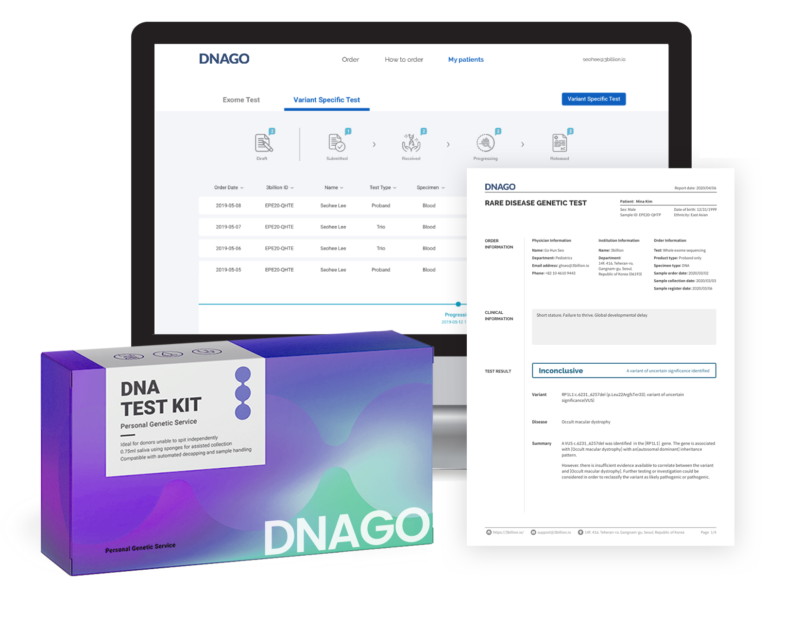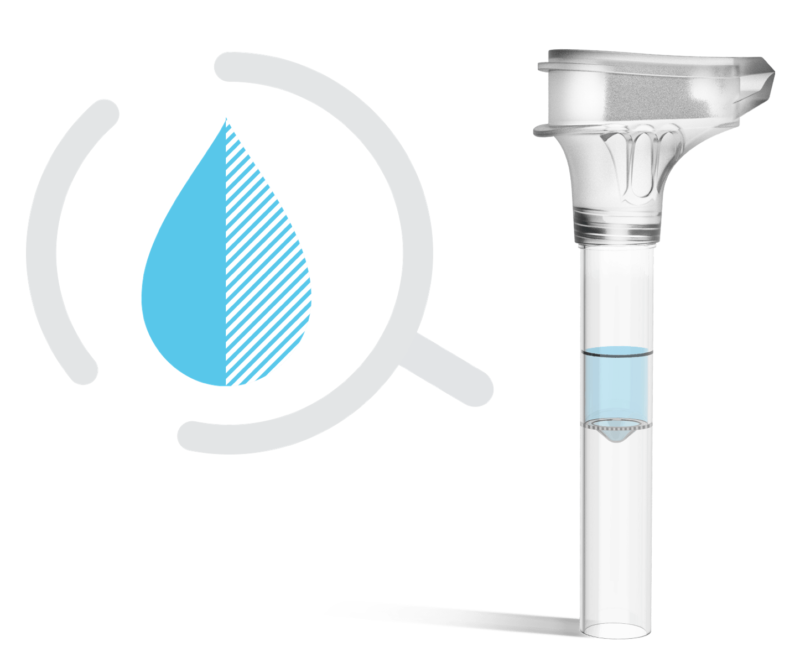Finding new ways to prevent diseases
Rare Disease Genetic Test
Diagnostic testing for patients across all rare genetic diseases, including Cystic fibrosis, Fabry disease, Epilepsy, Hemophilia, all types of hereditary cancers, etc.

One test to cover all genes
Decoding all genes
A genetic variant in a gene causes a rare genetic disease. To maximize the diagnostic yield, all DNA sequences of 20,000 genes can be decoded by whole exome sequencing.
With the advanced sequencing technology, 99.3% of gene regions are decoded on average.
One symptom, many potential diseases
Why do we decode whole genes? Genetic mutations in different genes can cause common symptoms. For example, if a patient has symptoms related to the nervous system, 3,394 diseases with different genetic origins could be the cause.
This is why all 3,394 diseases need to be tested for the diagnosis.
To test all rare genetic diseases and maximize diagnostic yield, we decode all genes.
Advanced interpretation, improved diagnostic yield
Interpretation problem
From each patient, more than 100,000 genetic variants can be identified. Each of the variants needs to be interpreted for its association with the patient’s symptoms.
Each variant is interpreted by standard interpretation guidelines such as ACMG guidelines (Richards S et al, 2015). ACMG guideline is composed of 28 rules, which means each variant needs to be interpreted in each of 28 different rules with different perspective and data. It takes an average of 90 minutes to interpret a variant by a trained medical geneticist.
AI for interpretation
We developed an automated variant interpretation system, called EVIDENCE, to interpret 100,000 variants identified in each patient according to the ACMG guideline. EVIDENCE has several advantages compared to human experts as below.
– Consistent and unbiased interpretation
– Minimize interpretation cost
– Improved interpretation by up-to-date data integration



